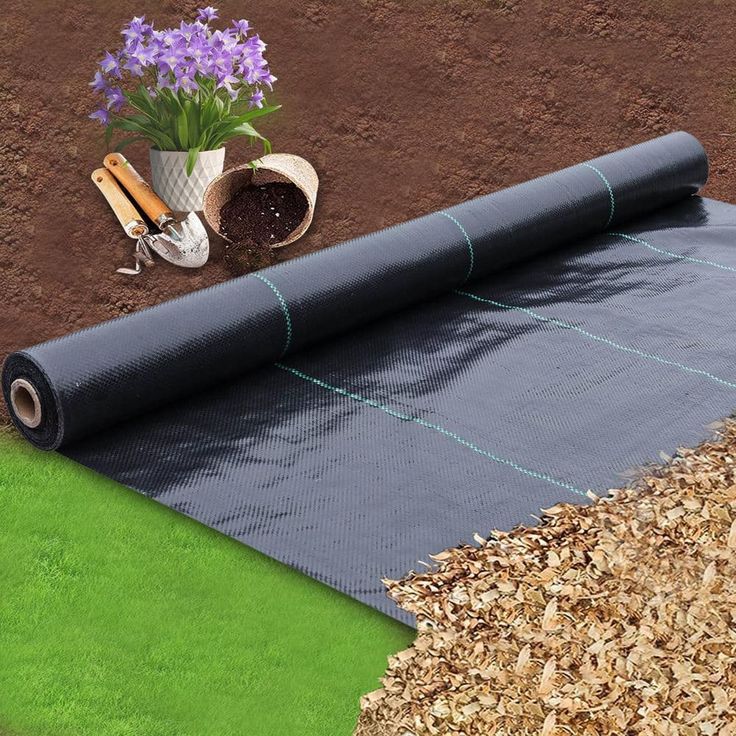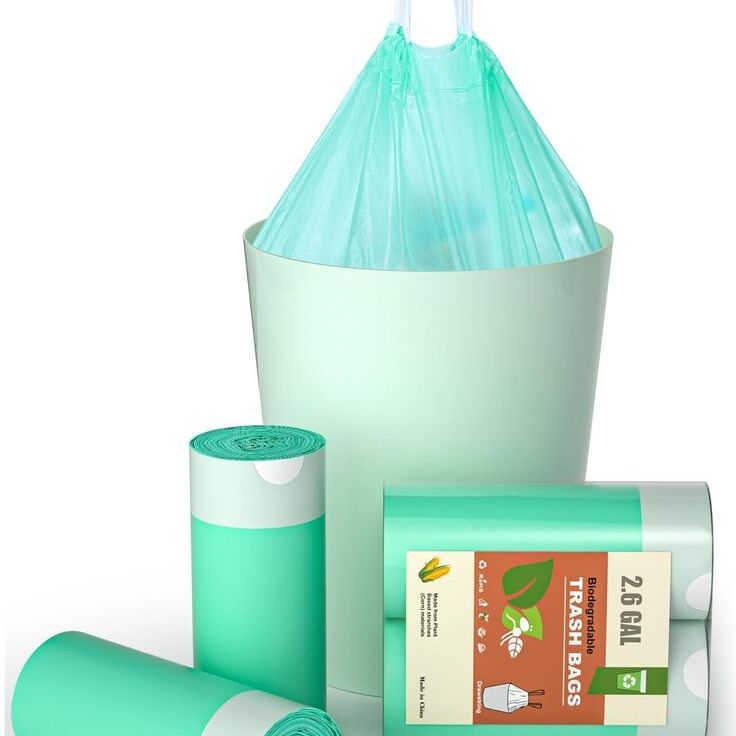What Are 12 Gallon Garbage Bags?
12 gallon garbage bags serve as medium-sized trash bags designed for residential and light commercial use. They strike a perfect balance between smaller, under-sink bags and larger outdoor trash bags. Their thoughtful size makes them suitable for daily use in most households. Homeowners appreciate them due to their versatility and practicality. These bags efficiently contain various types of waste, ensuring easy disposal and management.
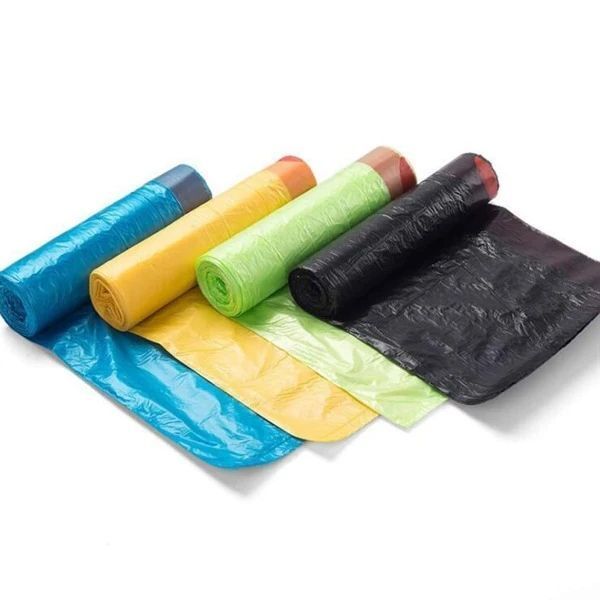
Common Uses for 12 Gallon Bags
12 gallon garbage bags fit perfectly in mid-sized trash bins, commonly found in kitchens and offices. They excel at collecting kitchen waste, papers, and recyclables without causing overflow or spillage. Many people also utilize these bags for lightweight item storage during cleaning or organizing tasks. From decluttering the garage to sorting toys in children’s rooms, these bags prove invaluable. Schools and small businesses often rely on them for convenient waste management. Their size allows for easy transport, making clean-up quick and efficient.
Dimensions and Capacity Overview
12 gallon garbage bags typically measure around 23-25 inches wide and 30-31 inches tall. They possess the capacity to hold up to 12 gallons of waste or approximately 45 liters. This size provides ample space to accommodate moderate volumes of trash without tearing. Homeowners find these bags ideal for capturing household waste during regular clean-ups. Furthermore, they serve well in office settings, where paper waste accumulates. Whether for single-use or multiple collections, 12 gallon garbage bags meet average household or office needs perfectly, ensuring a tidy environment.
Benefits of Eco-Friendly Garbage Bags
Eco-friendly garbage bags provide a sustainable solution for waste management. They minimize environmental impact while ensuring optimal functionality. By choosing these bags, consumers contribute to a healthier planet. This choice often aligns with growing awareness of ecological issues. Eco-friendly garbage bags not only serve their purpose but also reflect a commitment to responsible consumption.
Features of Environmentally Friendly Materials
Eco-friendly bags utilize renewable and non-toxic materials such as plant-based polymers and recycled plastics. These materials offer a significant advantage as they break down faster than traditional plastics. Many eco-friendly options are free from harmful chemicals, making them safer for users and the environment alike. Their design does not compromise on strength; they remain durable and resistant to tearing despite being crafted from sustainable resources. This ability to endure typical waste conditions without sacrificing integrity enhances their appeal.
Contribution to Reducing Plastic Waste
Eco-friendly garbage bags play a vital role in reducing reliance on conventional plastic. Their biodegradable or compostable properties actively cut down on waste in landfills. Unlike traditional plastic bags, which can take hundreds of years to decompose, eco-friendly options diminish in a fraction of that time. Over time, they help limit microplastic pollution, enhancing the protection of ecosystems. Each choice to use these bags promotes a cleaner, greener future for subsequent generations.
Comparisons with Traditional Plastic Bags
Traditional plastic bags often come with a lower price tag, but their environmental harm is undeniable. Eco-friendly bags may be slightly more expensive, yet they offer essential environmental benefits, including a reduced carbon footprint. They decompose much faster and won’t contribute to the long-term plastic pollution crisis. Despite the initial higher cost, the long-term sustainability they offer makes them a smarter choice for consumers. Choosing eco-friendly garbage bags becomes an easy decision when considering the broader implications for our planet’s health.
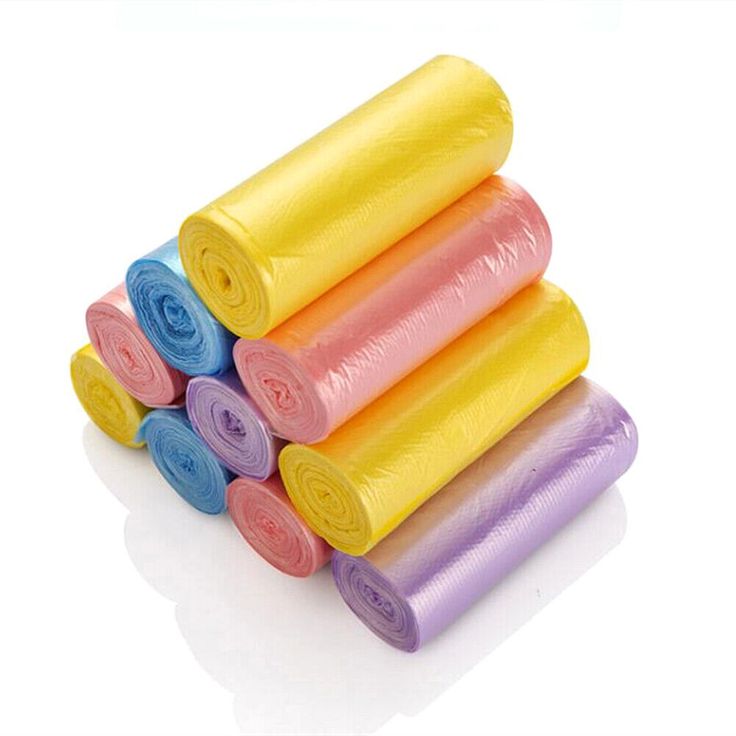
Materials Used in Eco-Friendly 12 Gallon Bags
Eco-friendly 12 gallon garbage bags are made with sustainable and earth-friendly materials. These materials reduce waste and limit damage to the environment while maintaining durability.
Biodegradable Materials
Biodegradable materials break down naturally in the environment. They degrade faster than conventional plastics, minimizing long-term pollution. These bags are often made with plant-based polymers like cornstarch or cassava root. They are great for composting and reduce landfill waste. Biodegradable bags are strong enough for everyday household use.
Compostable Bag Options
Compostable bags are designed to break down fully in composting systems. Unlike biodegradable bags, they leave no harmful residue when decomposing. Compostable options are typically made from organic substances like PLA (polylactic acid) derived from plants. These bags meet strict international composting standards and are ideal for composting kitchen and organic waste.
Recyclable Plastics
Recyclable plastics are made from previously used materials that can be reused. These bags help reduce the production of new plastic and conserve resources. Some eco-friendly garbage bags use recycled plastics combined with other sustainable components. They are durable, affordable, and support environmental conservation efforts. Recyclable plastics are perfect for non-compostable trash disposal.
Where to Buy Eco-Friendly 12 Gallon Garbage Bags
Finding eco-friendly 12 gallon garbage bags is easier than ever. They are available online and in local stores, offering convenience and sustainable alternatives.
Online Stores and Marketplaces
Online platforms are the most accessible for eco-friendly garbage bags. Websites like Amazon and Walmart offer various options to suit your needs. Many specialized eco-friendly brands also sell directly through their websites. This ensures that you get genuine products made with sustainable materials. Additionally, sites like Etsy provide handmade or small-batch eco-friendly bags. You can compare prices and product reviews for the best value. Look for certifications or descriptions confirming biodegradable or compostable features. Online shopping is practical and allows quick doorstep delivery.
Local Retailers Offering Green Alternatives
If you prefer shopping locally, many stores carry eco-friendly garbage bags. Check out supermarkets like Whole Foods and Trader Joe’s, which often stock such products. Smaller health and eco-focused retailers also offer sustainable garbage bags. Home improvement stores, including Lowe’s or Home Depot, may have eco-friendly options in their cleaning supply sections. Ask store employees to guide you to the green alternatives available. Supporting local businesses can reduce the environmental footprint of product shipping. Shopping in person also allows you to verify the quality of materials.

How to Choose the Best Eco-Friendly Garbage Bags
Choosing the right eco-friendly 12 gallon garbage bags ensures functionality and sustainability. Look for features that align with your needs and environmental goals. Here are specific aspects to evaluate:
Key Features to Look For
- Material Composition: Select bags made from biodegradable, compostable, or recyclable materials. These materials help reduce environmental harm.
- Durability and Strength: Ensure the bags are sturdy and tear-resistant for daily household or office use.
- Intended Use: Match the bag type to the waste type, such as compostable bags for organic waste.
- Size Compatibility: Pick bags that fit snugly into standard 12 gallon bins for optimal usability.
- Ease of Disposal: Consider bags with clear instructions for proper disposal, like composting or recycling.
Certifications and Standards to Consider
- Compostability Certification: Look for certifications like ASTM D6400 or EN 13432. These ensure the bags break down completely in compost systems.
- Biodegradability Label: Bags labeled “biodegradable” should meet recognized standards to decompose quickly in natural settings.
- Recycled Content: Verify claims of recycled material usage with certifications like the Blue Angel or Green Seal.
- Manufacturer Transparency: Ensure the brand discloses eco-friendly materials and adheres to sustainability goals.
By focusing on these features and certifications, you can select eco-friendly 12 gallon garbage bags that align with both practicality and environmental responsibility.
Proper Disposal of Eco-Friendly Bags
Proper disposal of eco-friendly bags ensures their environmental benefits are fully realized. Composting and recycling are two key methods for handling these bags responsibly.
Composting Guidelines
Eco-friendly compostable bags are designed to break down effectively in composting systems. Follow these steps for successful composting:
- Identify Compostable Bags: Ensure that the 12 gallon garbage bags you use are clearly labeled with compostability certifications, such as ASTM D6400 or EN 13432. These certifications guarantee that the bags will decompose properly in compost conditions.
- Use for Organic Waste: Place kitchen scraps, yard waste, and other biodegradable materials inside the compostable bags. This includes fruit and vegetable peels, coffee grounds, and grass clippings. Using these bags helps contain organic waste neatly.
- Composting Location: Add the bags filled with organic materials to your home compost bins. Alternatively, you can take them to an industrial composting facility if needed. Ensure that the facility can process compostable bags for maximum effectiveness.
- Monitor Decomposition: In home systems, regularly check conditions like temperature and moisture. Maintaining a balance of these factors promotes efficient breakdown of materials within the compost.
Composting these bags reduces landfill waste and provides valuable compost for gardens. This practice enhances soil health and supports sustainable gardening.
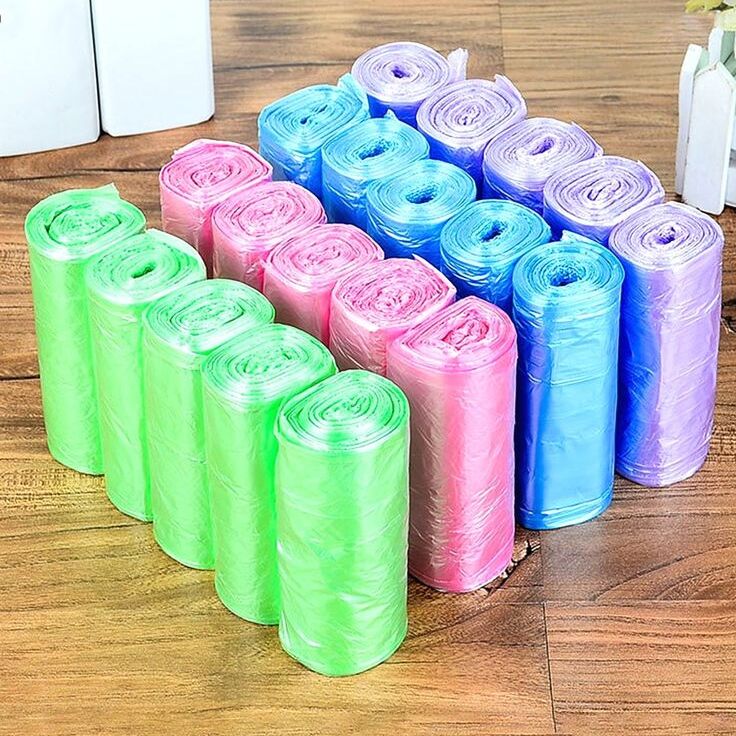
Recycling Instructions
Recyclable eco-friendly 12 gallon garbage bags should be disposed of carefully. Proper handling ensures effective processing. Follow these steps for responsible recycling:
- Check Material Type: Only recycle bags that are clearly marked as recyclable. Look for symbols indicating they contain recycled content or are made from recyclable plastics. Not all bags qualify for recycling, so verify their compatibility first.
- Clean the Bags: It’s essential to remove any food residue or other contaminants from the bags. Residue can contaminate recycling streams and impact the processing of materials. Rinsing or wiping down the bags before disposal helps ensure they can be recycled properly.
- Identify Recycling Programs: Confirm that local recycling facilities accept soft plastics or specialized recycling bags. Recycling programs vary by location, so it’s important to check beforehand. This information may be available on your municipal website or by calling local recycling centers.
- Drop-off Locations: Use designated recycling bins for dropping off bags or take them to local drop-off centers. Following the proper disposal methods helps streamline the recycling process.
Recycling supports resource conservation and lowers the demand for new plastic production. By following these practices, you contribute to waste reduction and environmental protection. Your efforts make a significant difference in creating a sustainable future.
Tips for Reducing Waste at Home
Reducing waste at home is crucial for environmental conservation. Simple habits can make a significant difference.
Alternatives to Single-Use Bags
Replacing single-use bags with reusable options significantly reduces plastic waste. Consider the following alternatives:
- Reusable Fabric Bags: These 12 gallon garbage bags, made from cloth or canvas, are perfect for grocery shopping. They are both washable and long-lasting, making them a sustainable choice for your shopping needs. Using these bags helps to eliminate the need for single-use plastic bags during your trips to the store.
- Multi-Purpose Containers: Instead of using disposable bags, store items in glass, metal, or durable plastic containers. These containers provide a better option for a variety of uses, from storing leftovers to organizing items around the house. Their longevity further reduces waste.
- Biodegradable Bags: For specific needs, such as organic waste disposal, choose biodegradable bags. These bags break down naturally over time, minimizing environmental impact. They serve as practical alternatives for composting or collecting compostable materials.
- Silicone Storage Bags: Reusable silicone bags are excellent for food storage. They are flexible, versatile, and eco-friendly, making them suitable for meals, snacks, or meal prep. Their durability means you can use them repeatedly without wear.
Making these switches prevents unnecessary waste and supports an eco-friendly lifestyle. Adopting these alternatives reflects a commitment to protecting the environment.
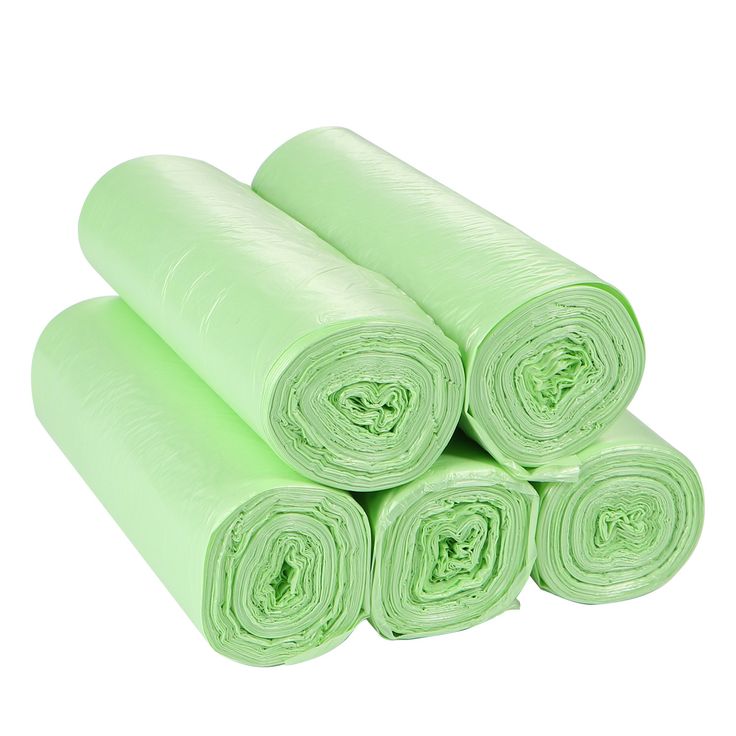
Organizing and Minimizing Trash
Organizing your trash disposal system can significantly cut down on household waste. Implement the following tips for more efficient waste management:
- Separate Recyclables: Sort your recyclables by placing paper, plastics, glass, and metals into designated recycling bins. This simple step helps ensure that materials are processed correctly and reused. By separating recyclables, you actively participate in reducing waste and conserving resources.
- Compost Organic Waste: Starting a compost bin for food scraps and yard waste offers an effective way to reduce landfill burden. Composting allows organic material to decompose naturally. This process creates nutrient-rich soil for gardening and minimizes the amount of waste sent to landfills.
- Declutter Regularly: Make it a habit to donate or sell unused items rather than throwing them away. Regular decluttering keeps your space organized and helps others benefit from items you no longer use. This practice not only reduces waste but also fosters a sense of community.
- Avoid Overbuying: Plan your purchases carefully to prevent waste generated from unnecessary packaging or expired goods. Creating a shopping list can help ensure you buy only what you truly need, minimizing waste in the process.
- Repair Instead of Replace: Fix broken items instead of discarding them. This approach extends the life of your belongings and reduces the demand for new products.
Organized waste management reduces trash, saves money, and minimizes environmental impact. Taking these measures can lead to a cleaner, greener home.

